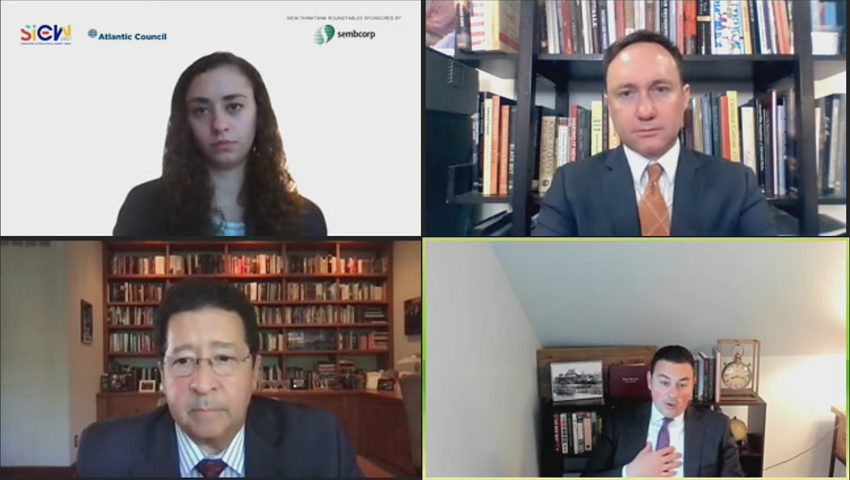With the US ramping up climate ambitions ahead of the upcoming COP26 in Glasgow, how can the US assist partners in Asia? Kim Jin reports

Speakers at SIEW Thinktank Roundtable H provided a closer look at how the United States could re-establish global climate leadership, especially in view of the country re-joining the Paris Agreement, hosting the Leaders’ Summit on Climate, and US participation in the upcoming COP26 in Glasgow.
US President Joe Biden has made climate change a key priority of his administration. Harry Kamian, Principal Deputy Assistant Secretary and Acting Assistant Secretary for the Bureau of Energy Resources at the US Department of State, shared that the Biden administration is committed to decarbonisation for itself and Asian partners—through providing regulatory support, sharing experiences with regional partners, and financing cooperation with development banks.
Mr Kamian stressed that the road ahead for decarbonisation is long and challenging, but the US is committed to working with Indo-Pacific partners to achieve common ambitions.
.png)
David Goldwyn, Chairman of Energy Advisory Group and Principal of Goldwyn Global Strategies, noted how market forces are turning out to be the real driver of energy transition in the US and that federal regulatory policies have a significant impact on the speed at which this transition takes place.
Rich Powell, Executive Director of Clearpath, discussed how an innovation-driven agenda can help solve the emissions challenge—and how the industry can build on the recent bipartisan success in the US to advance a climate agenda as well as address key initiatives from the rapidly developing Asia Pacific region,
Ashley Johnson, Director for Energy and Environmental Affairs at the National Bureau of Asian Research, explored alternative avenues for climate action outside of government-led partnerships. She sees the trend being driven by the private sector and market-based realities, highlighting that this allows projects to be “driven by what is marketable and feasible in the economy”.
“A lot of these programs or opportunities for financing are wanting to match the resources we have with the realities and needs on the ground,” Ms Johnson said. She added that public-private partnerships are important tools to shape renewable energy project trajectories.
Follow us on Twitter (@SIEW_sg) to get the latest #SIEW2021 updates throughout the day!